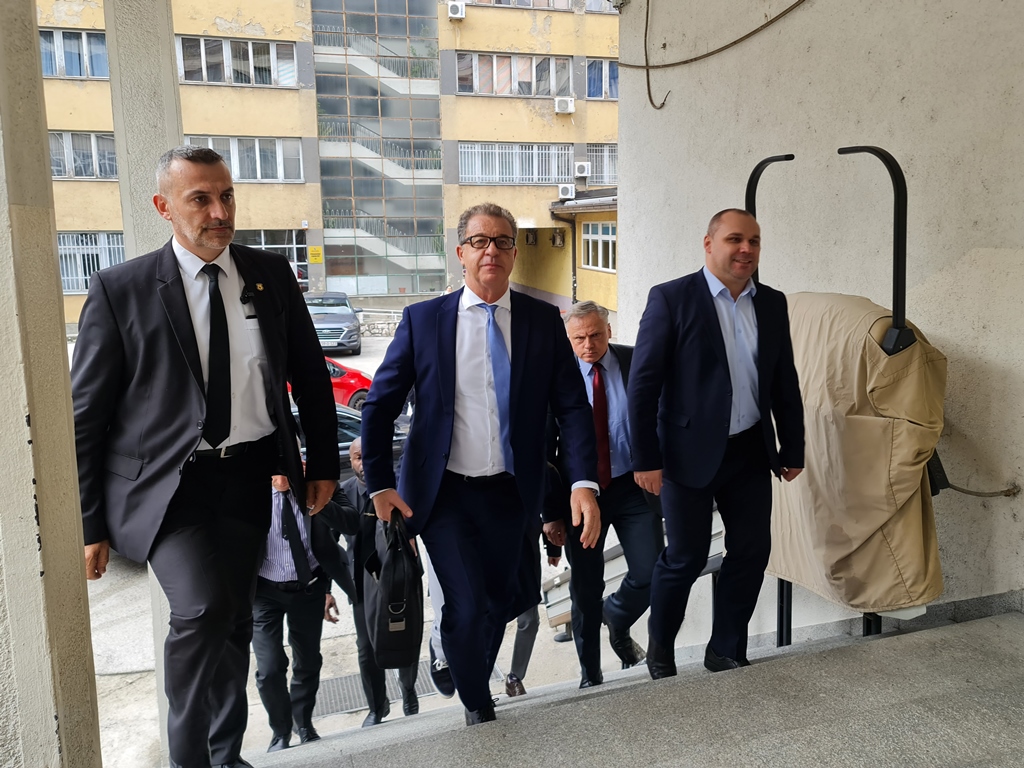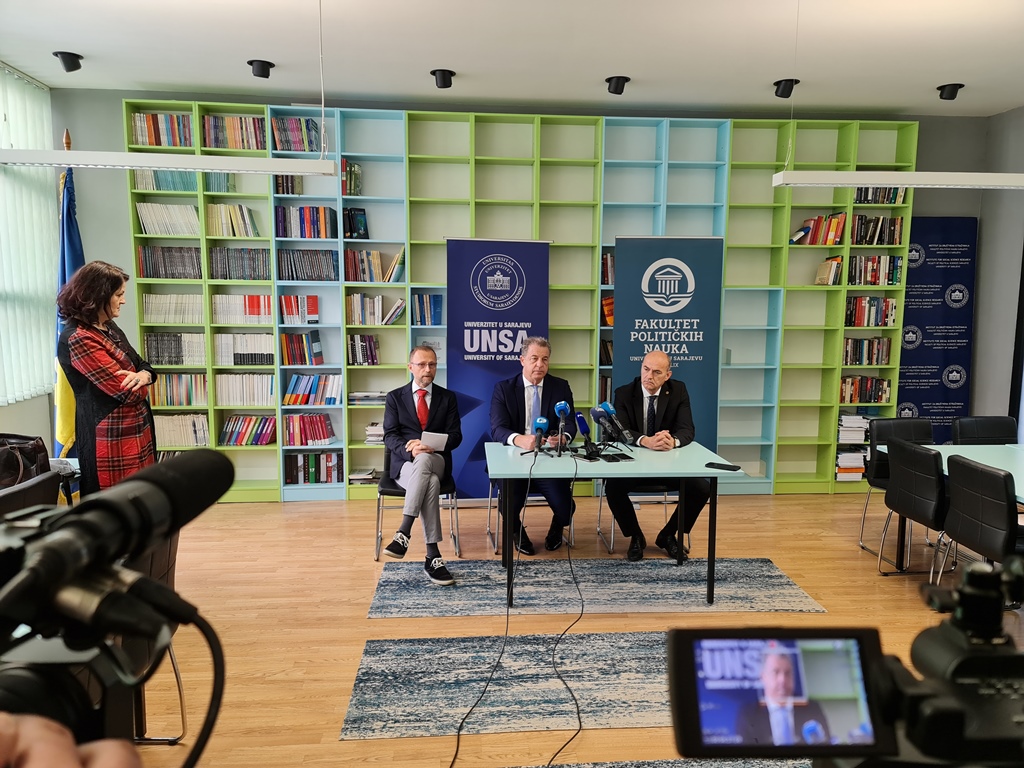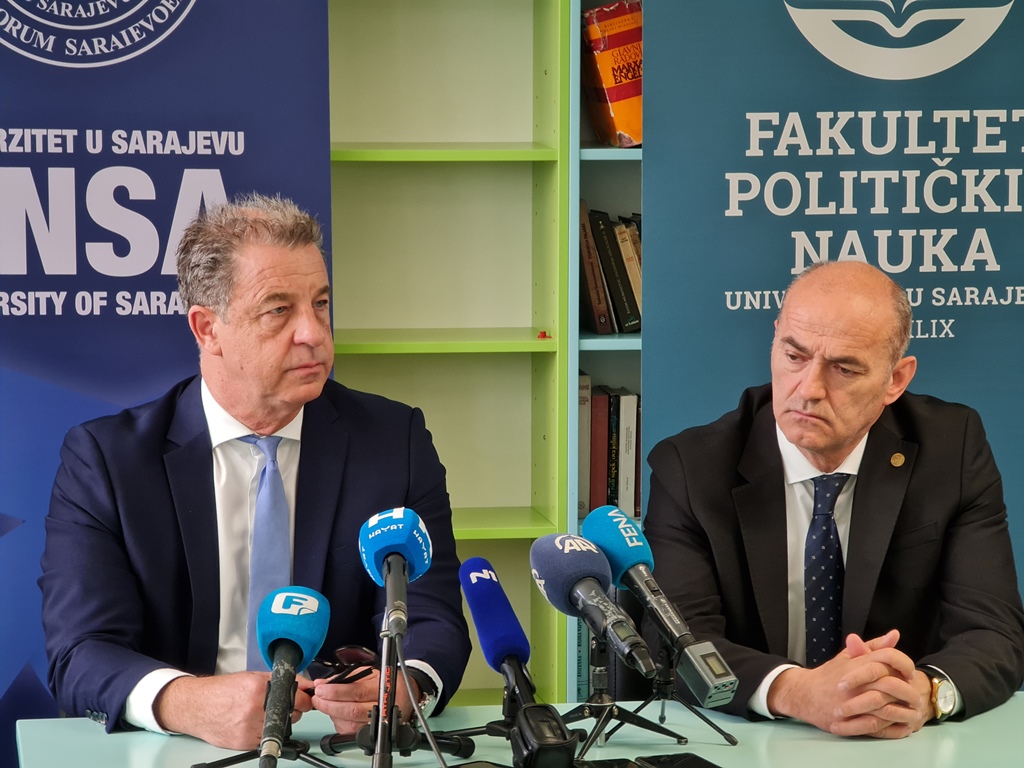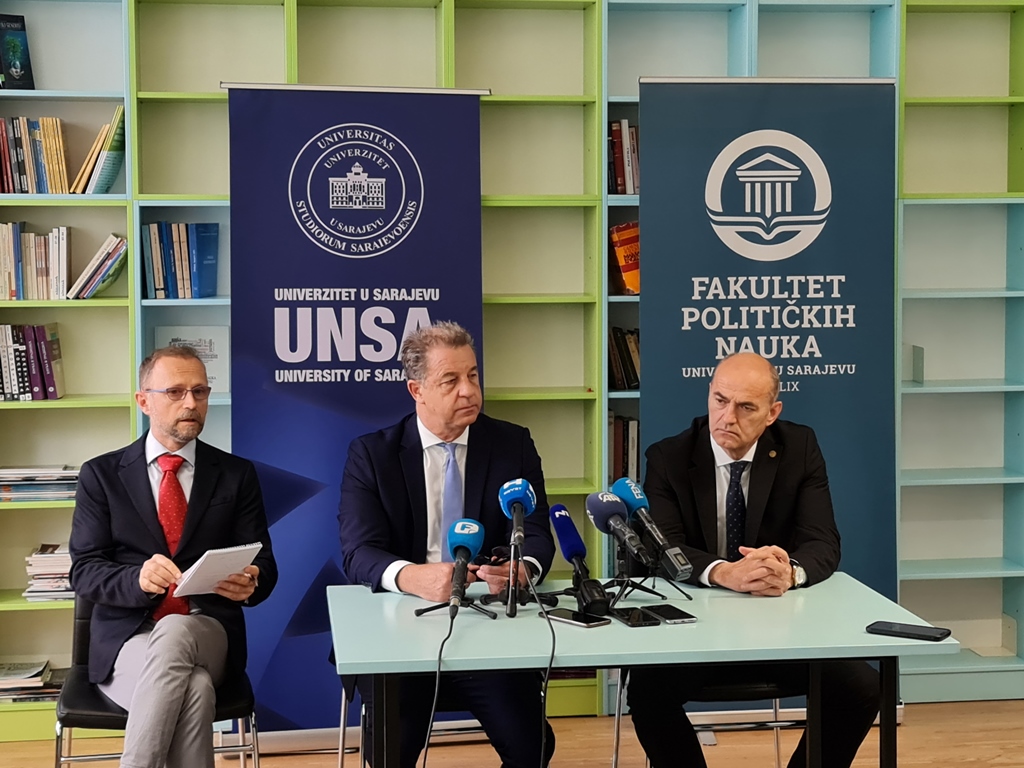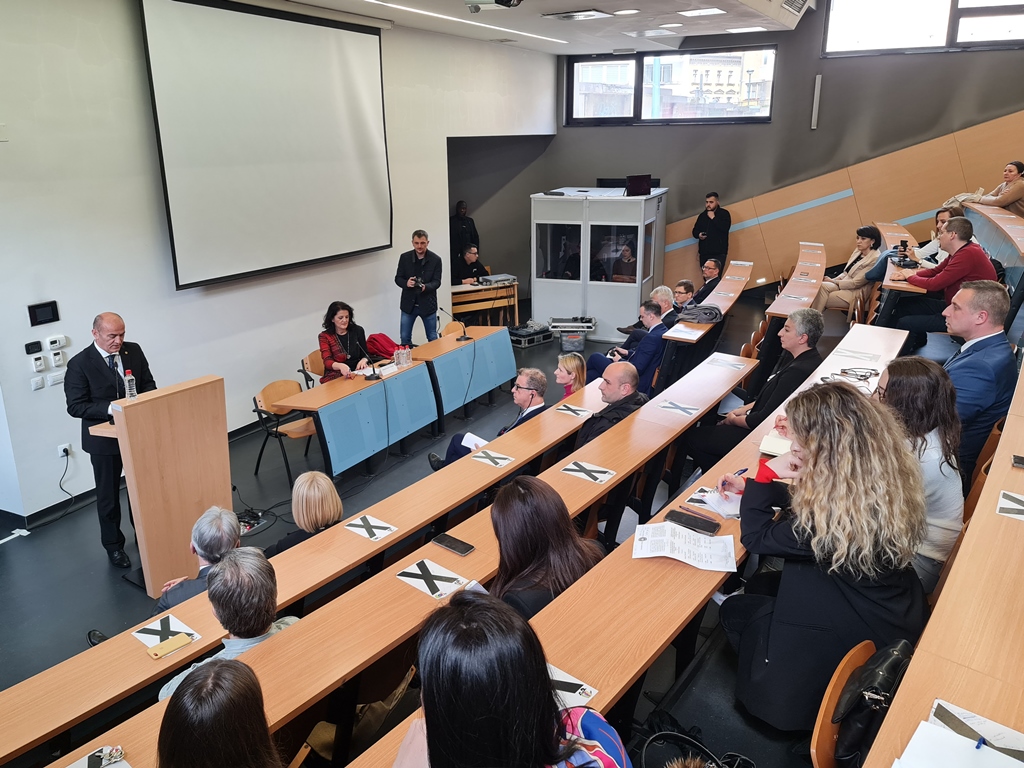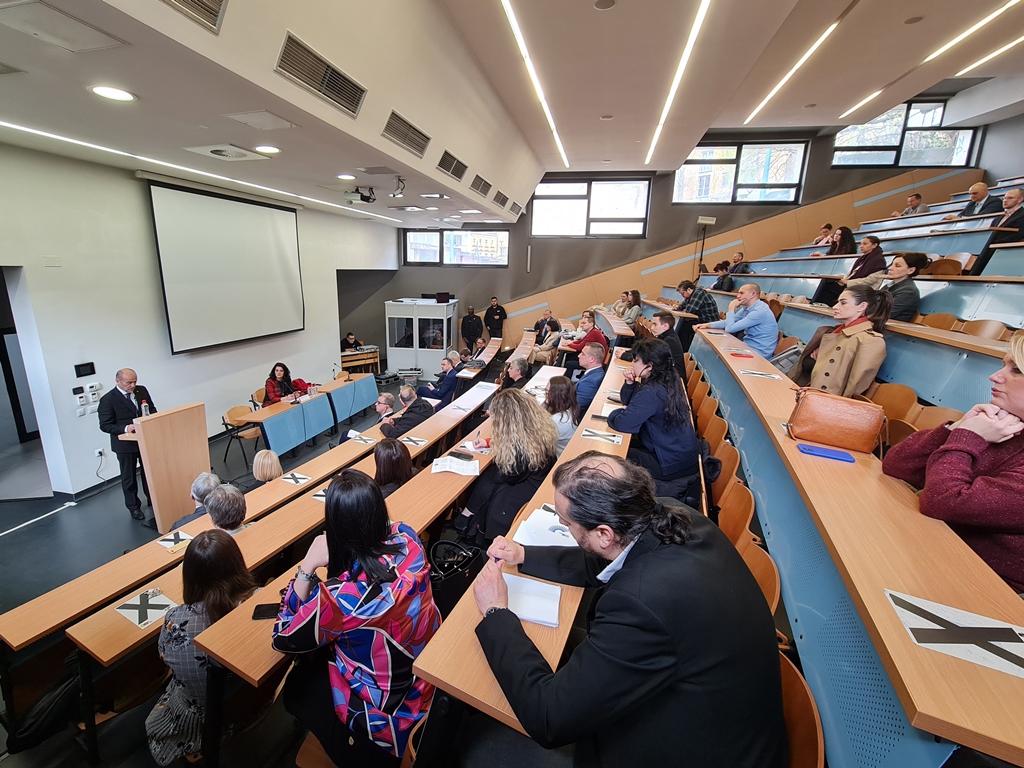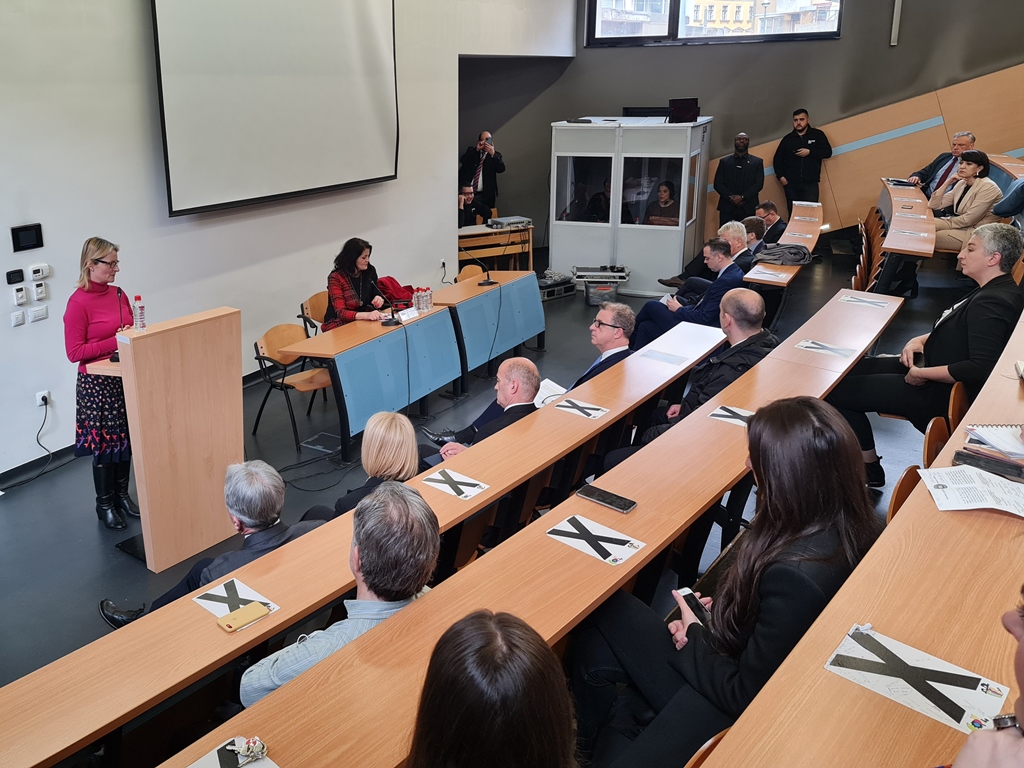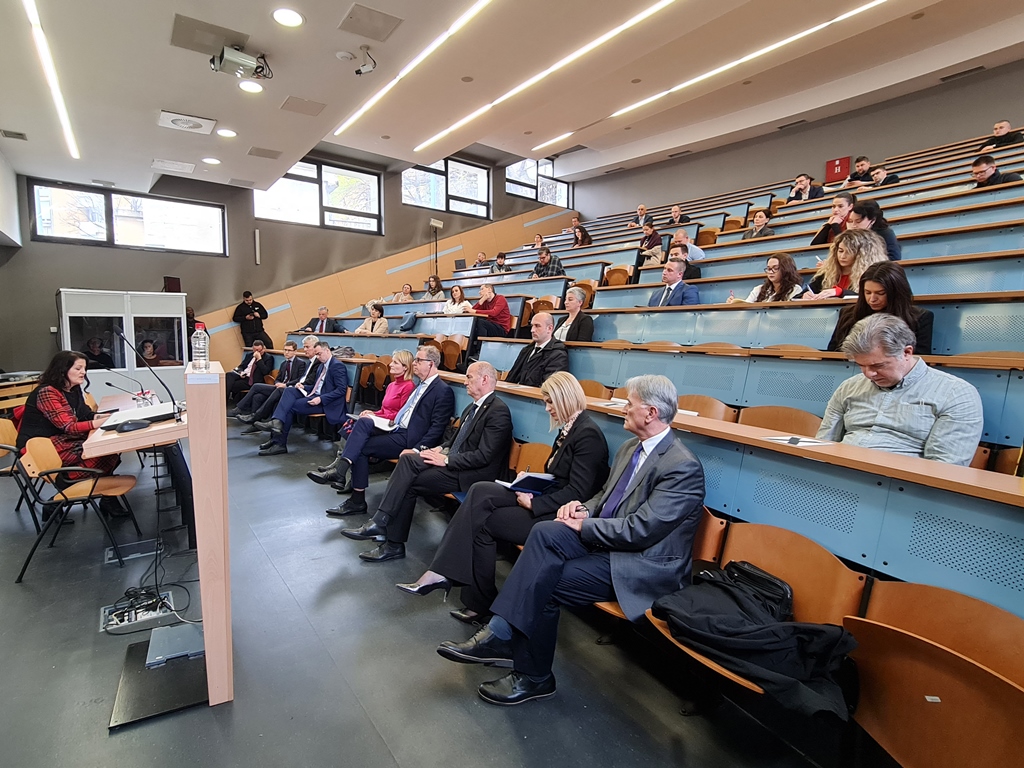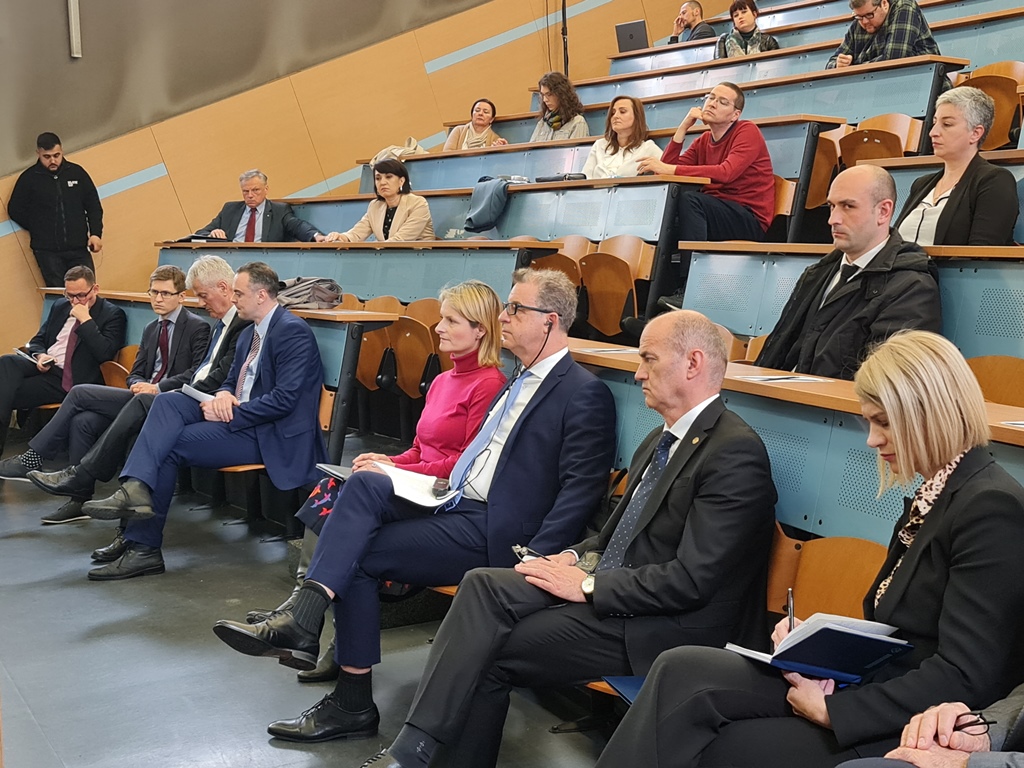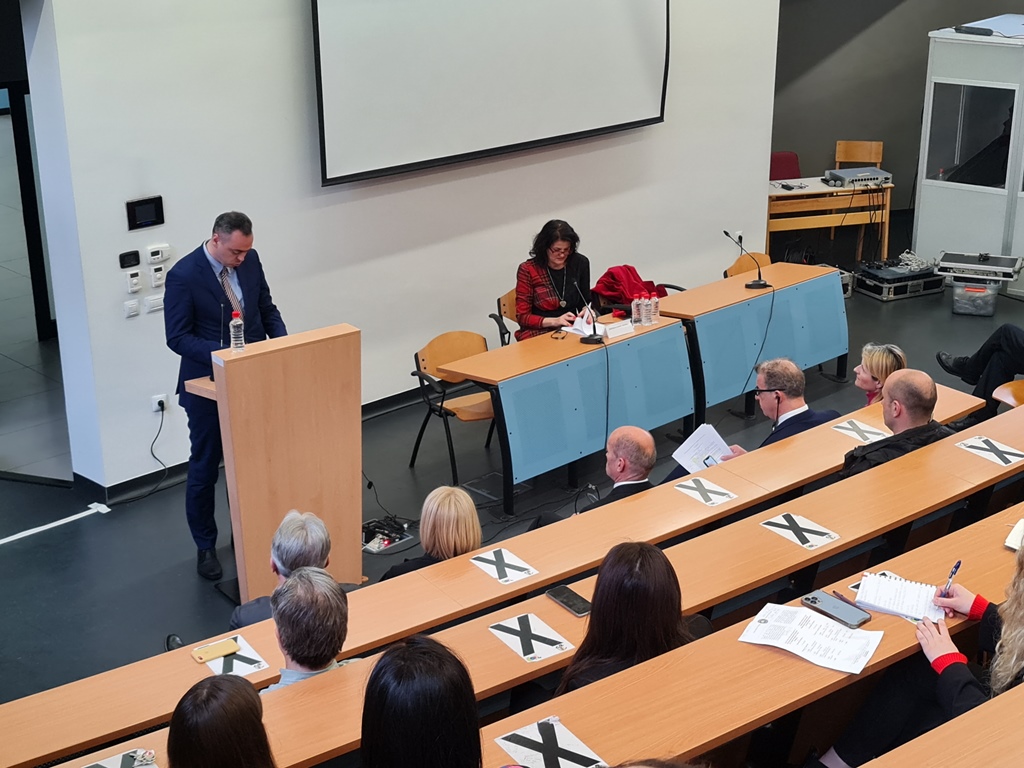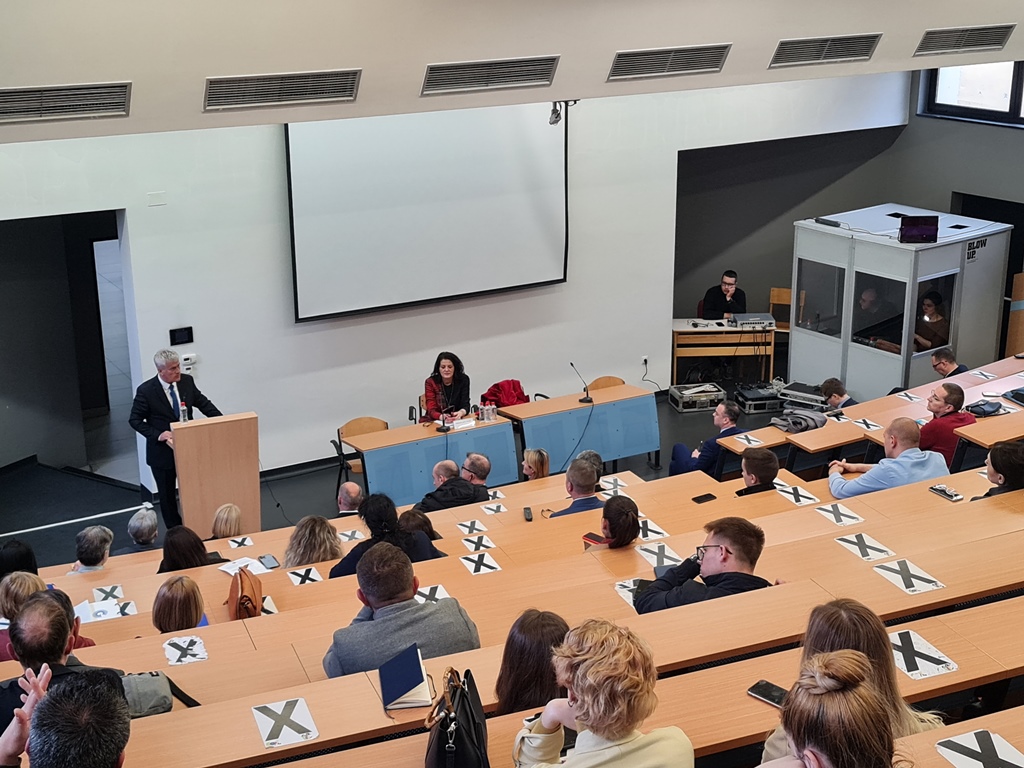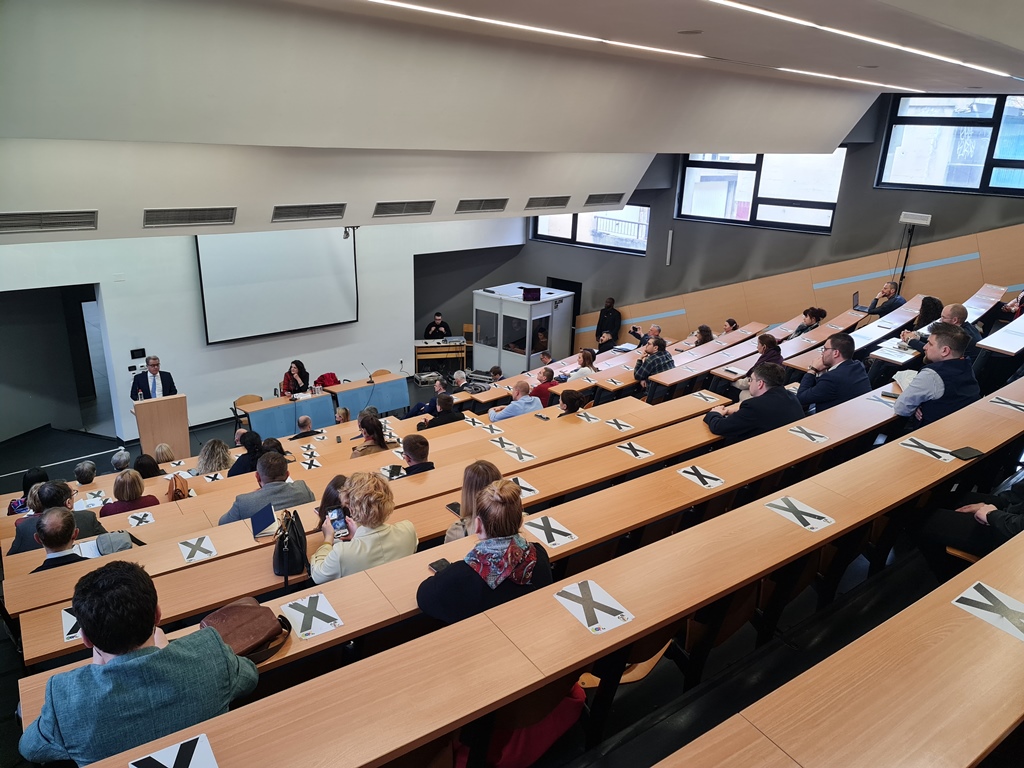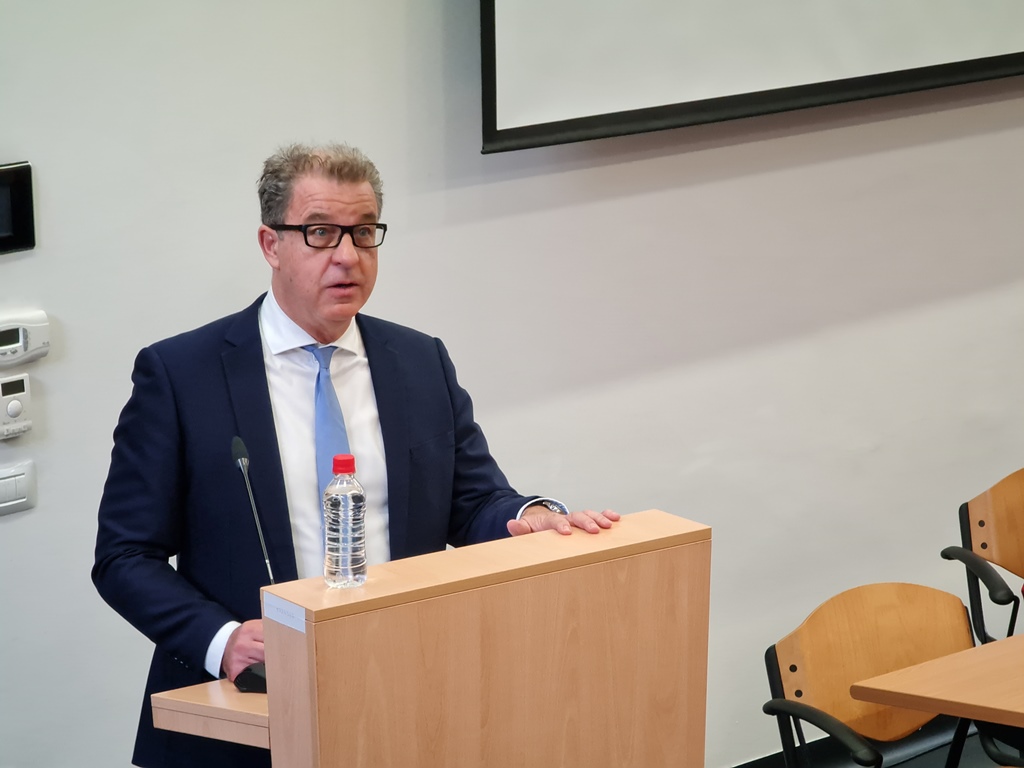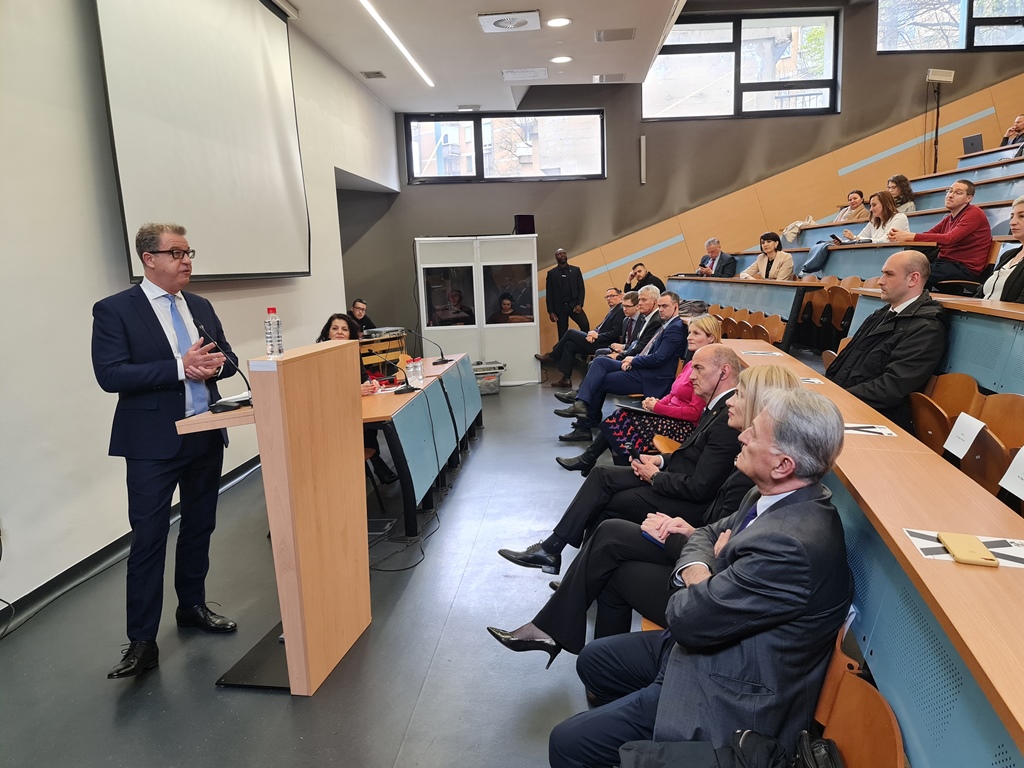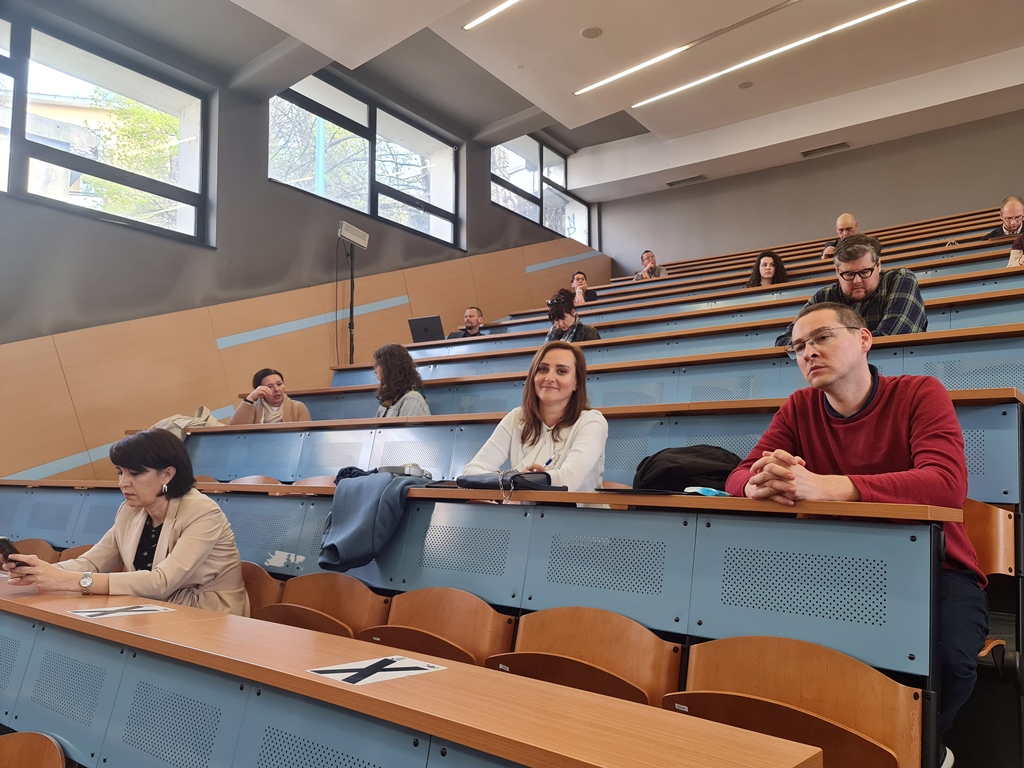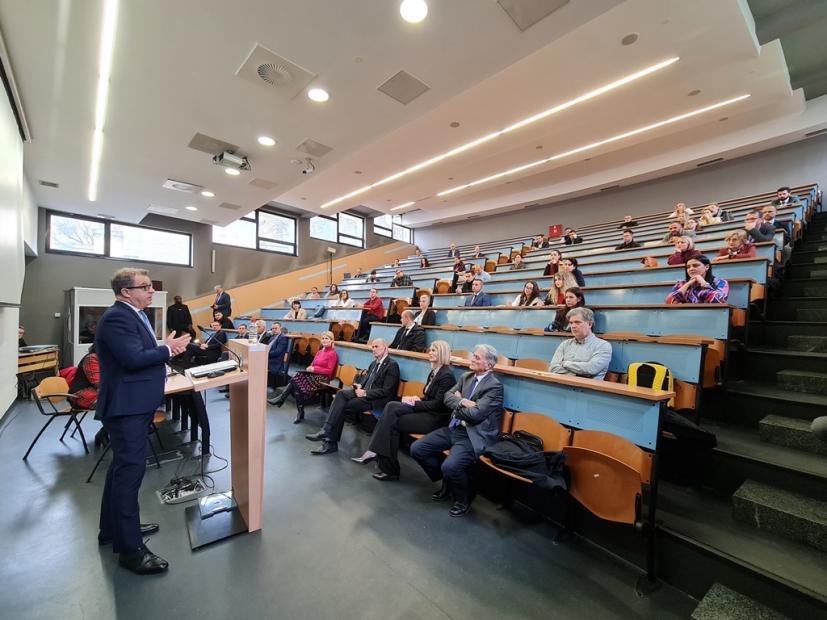Guest lecture by dr. Serge Brammertza, chief prosecutor of the International Residual Mechanism for Criminal Courts, was held on Thursday, April 7, 2022, in the amphitheater of the Faculty of Political Sciences, organized by the University of Sarajevo, in cooperation with the Faculty of Political Sciences, the Institute of History and the Institute for the Research of Crimes Against humanity and international law.
Rector of the University of Sarajevo, prof. Ph.D. Rifat Škrijelj pointed out that dr. Serge Brammertz, one of the most prominent personalities of international law today, and that the role and importance of the International Criminal Tribunal for the former Yugoslavia are of inestimable importance for justice and fairness in these areas, as well as satisfaction for all the victims who went through unprecedented suffering and suffering in past wars on the territory of the former Yugoslavia, and especially Bosnia and Herzegovina, where genocide was committed. "That's why it's very important that our students and professors have the opportunity to get a more complete insight into the work of the International Tribunal and its verdicts for events that have changed the lives of all of us," Rector Škrijelj emphasized.
Those present were also addressed by prof. Ph.D. Sanela Bašić, vice-dean for international cooperation of the Faculty of Political Sciences UNSA, dr. Sedad Bešlija, director of the UNSA Institute of History, and prof. Ph.D. Rasim Muratović, director of the UNSA Institute for Research on Crimes against Humanity and International Law, and the moderator was Dženana Karup-Druško.
Vice dean's prof. Ph.D. Sanela Bašić stated that thirty years later it is impossible not to notice that the fundamental legal truth established by the ICTY, the public publication of available facts and findings, not only failed to lead to the development of a common truth, but led to active denial, reinterpretation, revision, rejection or avoidance of these established legal truths. "Therefore, we are glad that today we have the opportunity to discuss the role, importance, achievements, and shortcomings of the ICTY with dr. Brammertz, a person who can offer us a unique insider's perspective and insights, a person to whom we thank for his stubborn fight for the truth to prevail", Vice Dean Bašić pointed out.
dr. Sedad Bešlija pointed out that the established judicial truth at the international level certainly helps in the process of knowing the historical truth, and that the civilized world has an obligation to fight for justice within this earthly framework.
Director of the Institute for Research of Crimes Against Humanity and International Law, Prof. Ph.D. Rasim Muratović stated that the International Criminal Court for the former Yugoslavia did a colossal job. "He accused 161 people, 90 of whom were sentenced, including the entire political and military leadership of the Bosnian entity of RS. Judges, prosecutors, investigators, international law experts, collaborators, the Association of Mothers' Movement of the enclaves of Srebrenica and Žepa and Bosniak liaison officers with the Hague Tribunal, Vasvija Vidović and mr. Amir Ahmić", Director Muratović pointed out, and added that no regional, national, or local court could do what the Hague Tribunal did.
Serge Brammertz spoke about the role, importance and results of the International Criminal Tribunal for the former Yugoslavia and the International Residual Mechanism for Criminal Courts.
He stated that he started his visit to Bosnia and Herzegovina with a visit to Srebrenica, and that he is continuing it with a visit to Banja Luka. He emphasized that it is very important for him that, in addition to talking to officials and diplomats, he has the opportunity to talk to students, adding that for a better future of this country, the new generations must work on reconciliation. He told the students and young people to look at everything critically and not to take things for granted, but to check every claim, support it with facts and come up with their own views.
Speaking about the work of prosecutor's offices in Bosnia and Herzegovina in prosecuting perpetrators of war crimes, he assessed that certain progress has been made over the years, but that it would be far from the truth to say that investigations are carried out in a perfect way, especially if you take into account that in The Hague indicted 161 people, which is more than all other international tribunals combined, but that number is still very small if it is known that 3,000 people are the subject of investigations in Bosnia and Herzegovina. He believes that more processes should be conducted against persons at a medium and high level, and he emphasized that he is most concerned about regional cooperation, since Croatia is not providing what it should be doing within that cooperation, and there are also problems in cooperation with Serbia. . dr. Brammertz stated that it is unthinkable for him, for someone who is a prosecutor and who believes in justice and who does not want to see impunity, that dozens of war crimes suspects found refuge a few kilometers away from the place where the investigation is being conducted.
Speaking about glorifying war criminals and denying genocide, dr. Brammertz emphasized that it is very important to take the necessary measures to prohibit any denial of genocide. He believes that the international community should react more strongly to that, because, as he said, what is the point of the United Nations forming the International Criminal Court for the former Yugoslavia if its decisions are not accepted and respected.
It is clear to him that the citizens are dissatisfied with the legal system in Bosnia and Herzegovina, but he believes that the greatest responsibility lies with the politicians, who must approach all these issues in a much more responsible and mature manner.
dr. Brammertz underlined that the denial of genocide is the last stage of the commission of that crime because it is about the criminal intent of inciting the commission of such a crime.
